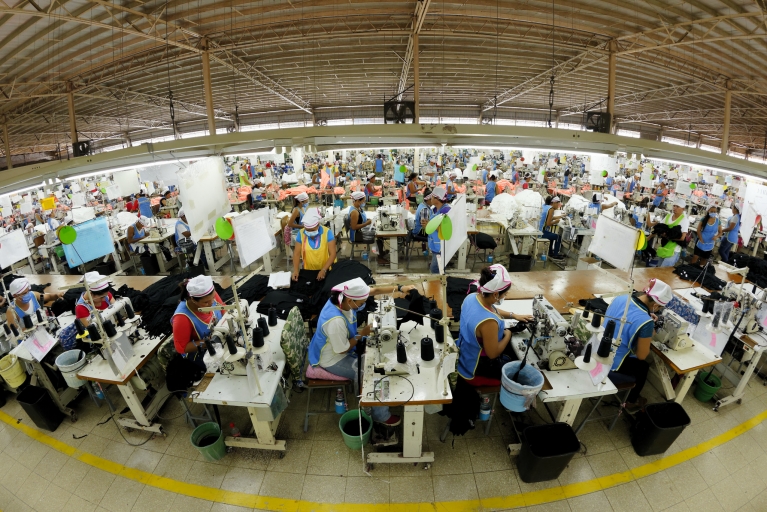
Garment factory workers, Vietnam
The year 2020-21 was difficult for economies worldwide, as the impacts of the Covid-19 pandemic continued to reverberate for businesses, communities and households. Loss of life, health, freedoms and wages were a stark reality for far too many in the face of pandemic-related shocks.
What began as a health crisis rapidly escalated into a much deeper and far-reaching socioeconomic crisis, promptly exposing and greatly exacerbating existing vulnerabilities and inequalities in global supply chains. And while much normal activity was forced to stop, the impacts of climate change continued, with many countries experiencing raging wildfires, catastrophic floods and harsh droughts.
2020-21 threw into sharp relief how ‘business as usual’ cannot address the many global challenges we are faced with. Instead, business must play an active role in the ‘new normal’, ensuring that workers in global supply chains are treated with dignity and that their rights are respected.
In response, ETI reviewed its 2020-25 Strategy to ensure relevance for the current crises and to help better understand and shape the ‘new normal’ that will no doubt emerge. Alongside ongoing work responding and reacting to emerging workers’ rights issues, we committed to proactively focus on two strategic themes: business practices and transitions and futures. We spent the last year embedding this change, while continuing to facilitate a united, multi-stakeholder approach amid a unique global emergency. When we could have hunkered down, ETI stepped up, supporting and advising corporate members, engaging trade unions and leveraging expert advice from NGOs to promote respect for workers' rights and drive better business across global supply chains.
This report outlines how we set about doing this and the impact ETI had over the course of the financial year.
